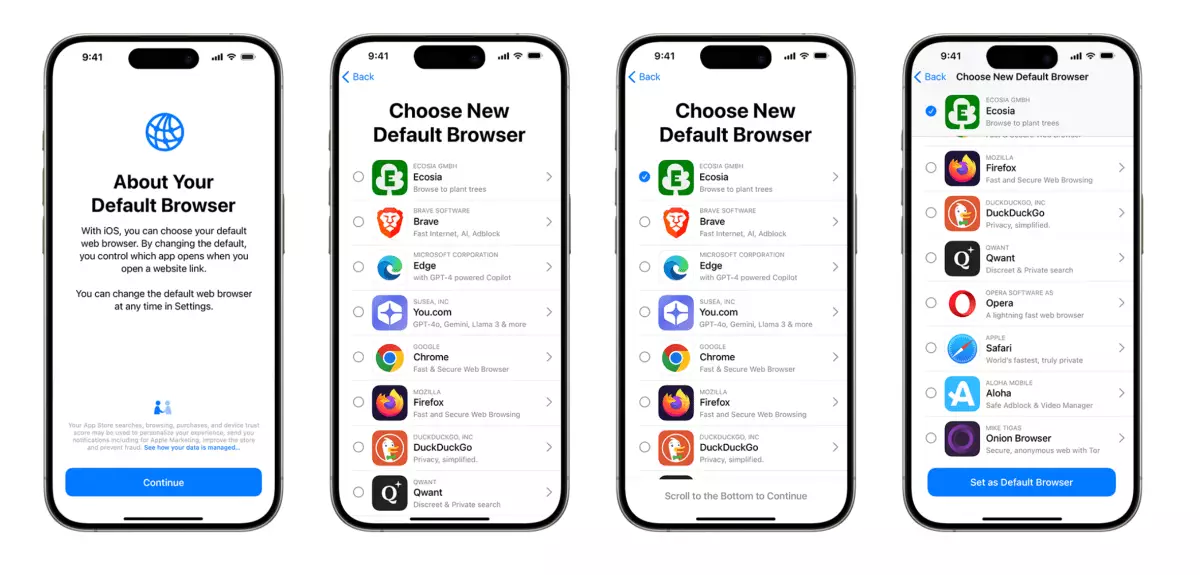Apple recently announced changes to its browser choice screens in compliance with the European Union’s Digital Markets Act. The redesigned screens will feature a toolbar on the left-hand side for users to select a browser directly, which will then be pinned to the top of the list as they scroll through available options. Notably, users will now be required to scroll through the full list of available browsers, all in a random order. Additionally, more information will be displayed per browser, including the app subtitle from the App Store product page.
In addition to changes in browser choice screens, Apple will introduce a centralized setting for EU users to view a list of default apps available. Moreover, the company plans to expand default settings for dialing phone numbers, sending messages, translating text, navigation, managing passwords, keyboards, and call spam filters. Further updates, including the ability to delete default apps such as Messages, Photos, Camera, and Safari, are set to arrive later this year for EU users.
Apple’s Response to Criticism
These changes come in response to criticism about the difficulty for users to switch away from Safari, Apple’s default browser. The company has been under scrutiny for potentially failing to meet broader user choice obligations under the Digital Markets Act. As a designated gatekeeper under the EU regulation, Apple must open up its mobile ecosystem to boost competition and consumer choice, facing penalties for non-compliance. The EU has initiated investigations on Apple’s compliance with the Act, focusing on browser choice screens and wider user choice obligations.
Enforcement and Compliance
The Digital Markets Act allows the European Commission to accept proposed remedies from gatekeepers to resolve concerns without resorting to full enforcement actions. This flexibility aims to deliver quick results while ensuring compliance with the regulation. Apple hopes that the recent changes will address the EU’s enforcement concerns without facing significant penalties. The Commission’s focus on enabling users to uninstall software applications, change default settings, and prompt choice screens reflects its commitment to ensuring user choice within the Apple ecosystem.
Apple has emphasized that the changes in browser choice screens and default apps reflect an ongoing compliance dialog with stakeholders and the European Commission. The company has taken feedback into account and views the iterative process as essential for meeting regulatory requirements. Despite the ongoing investigation into choice obligations, Apple and the Commission are working together on compliance solutions to address concerns raised under the Digital Markets Act.
Apple’s revised approach to compliance with the EU’s Digital Markets Act signifies a significant shift in its policies towards browser choice screens and default apps for EU users. By introducing redesigned screens and expanding default settings, Apple aims to meet regulatory requirements and enhance user choice within its ecosystem. While challenges remain in ensuring full compliance with the Act, ongoing dialogues and iterative processes demonstrate Apple’s commitment to addressing enforcement concerns with the European Commission.

